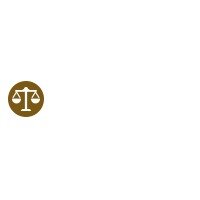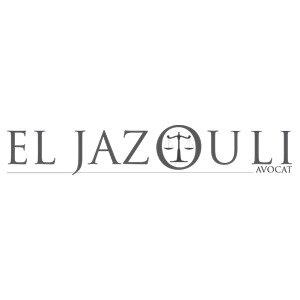Best Corporate Governance Lawyers in Marrakesh
Share your needs with us, get contacted by law firms.
Free. Takes 2 min.
List of the best lawyers in Marrakesh, Morocco
About Corporate Governance Law in Marrakesh, Morocco
Corporate governance in Marrakesh, Morocco refers to the systems, rules, and practices by which companies are directed and controlled. This field ensures that companies act in the interests of shareholders, stakeholders, and the wider community, helping to maintain transparency, accountability, and ethical behavior in business operations. Moroccan law, including regulations from the Casablanca Stock Exchange and the Moroccan Companies Code, sets the foundation for how companies should be managed and supervised. Marrakesh, as one of Morocco's major commercial centers, is home to numerous corporations that must comply with these governance standards.
Why You May Need a Lawyer
Engaging a lawyer for corporate governance matters in Marrakesh can be essential in several situations. Common scenarios include establishing a new company, drafting or revising by-laws and shareholder agreements, navigating conflicts between board members or shareholders, compliance with local and international financial reporting standards, and responding to investigations by local authorities. Legal experts also assist in mergers and acquisitions, regulatory audits, risk management, and restructuring. For foreign investors or those unfamiliar with Moroccan legal procedures, a local lawyer provides invaluable guidance to ensure compliance and manage risks effectively.
Local Laws Overview
Key laws governing corporate governance in Marrakesh include the Moroccan Companies Code (Loi n° 17-95 relative aux sociétés anonymes and Loi n° 5-96 relative aux sociétés en nom collectif), stock exchange regulations, and anti-corruption statutes. Corporate governance rules apply primarily to public companies and listed entities, setting requirements for the composition of boards of directors, management roles, annual general meetings, and disclosure of financial information. Moroccan law emphasizes the separation of powers within a company, director due diligence, minority shareholder rights, and mechanisms for resolving internal disputes. Regulatory bodies such as the Autorité Marocaine du Marché des Capitaux (AMMC) oversee compliance and enforce regulations.
Frequently Asked Questions
What is corporate governance and why is it important in Morocco?
Corporate governance refers to the systems and processes that ensure a company is run fairly, transparently, and in compliance with the law. In Morocco, good corporate governance is crucial for attracting investors, reducing risks, and fostering sustainable business growth.
Do all companies in Marrakesh have to comply with corporate governance rules?
All companies must comply with basic governance principles, but more specific and stringent rules apply to public companies and those listed on the Casablanca Stock Exchange.
What are the main corporate governance bodies in Marrakesh?
Key governance structures include the board of directors, audit committees, shareholder assemblies, and sometimes supervisory boards. These are mandated by Moroccan law for certain types of companies.
How are corporate disputes between shareholders resolved?
Disputes are usually resolved through negotiation, mediation, or litigation. Moroccan law provides mechanisms for minority shareholder protection, including recourse to the courts if necessary.
What are the main legal responsibilities of company directors?
Directors must act in good faith, avoid conflicts of interest, ensure compliance with the law, safeguard company assets, and act in the interests of the company and its stakeholders.
Is it mandatory to appoint independent directors in Morocco?
For public and listed companies, appointing independent directors is encouraged and often required under stock exchange regulations in order to ensure objective oversight.
What happens if a company fails to follow corporate governance standards?
Non-compliance can lead to regulatory investigations, fines, legal action from shareholders, or even dissolution of the company in severe cases.
Are there specific rules for foreign investors in Marrakesh?
Yes, foreign investors must comply with Moroccan company laws, investment regulations, and governance standards, and may require additional permits or approvals depending on the sector.
How frequently must a company hold shareholder meetings?
Companies are generally required to hold at least one annual general meeting to approve financial statements, elect directors, and discuss other key matters.
Can corporate governance policies be customized?
Yes, within the framework of Moroccan law, companies can tailor their governance policies to better fit their structure and objectives, but must still adhere to statutory requirements.
Additional Resources
For more detailed guidance on corporate governance in Marrakesh, you can consult the following resources and organizations:
- Autorité Marocaine du Marché des Capitaux (AMMC), the Moroccan Capital Markets Authority - Moroccan Ministry of Economy and Finance - Regional branches of the Moroccan Commercial Courts - Casablanca Stock Exchange regulations - Local branches of the Moroccan Bar Association for referrals to specialized corporate lawyers - Chambers of commerce and industry in Marrakesh, which offer business support and legal resources
Next Steps
If you require legal assistance regarding corporate governance issues in Marrakesh, consider the following steps. Start by gathering all relevant company documentation, such as constitutive acts, bylaws, meeting minutes, and shareholder agreements. Clearly define your concerns or objectives. Then, contact a qualified Moroccan lawyer with experience in corporate governance. Arrange a consultation to discuss your case, explore your options, and understand the potential legal steps. For complex issues involving international shareholders or listed companies, seek a legal expert familiar with both Moroccan and international corporate standards. Proactive legal guidance helps protect your business interests, ensures compliance, and fosters long-term growth and stability.
Lawzana helps you find the best lawyers and law firms in Marrakesh through a curated and pre-screened list of qualified legal professionals. Our platform offers rankings and detailed profiles of attorneys and law firms, allowing you to compare based on practice areas, including Corporate Governance, experience, and client feedback.
Each profile includes a description of the firm's areas of practice, client reviews, team members and partners, year of establishment, spoken languages, office locations, contact information, social media presence, and any published articles or resources. Most firms on our platform speak English and are experienced in both local and international legal matters.
Get a quote from top-rated law firms in Marrakesh, Morocco — quickly, securely, and without unnecessary hassle.
Disclaimer:
The information provided on this page is for general informational purposes only and does not constitute legal advice. While we strive to ensure the accuracy and relevance of the content, legal information may change over time, and interpretations of the law can vary. You should always consult with a qualified legal professional for advice specific to your situation.
We disclaim all liability for actions taken or not taken based on the content of this page. If you believe any information is incorrect or outdated, please contact us, and we will review and update it where appropriate.
















